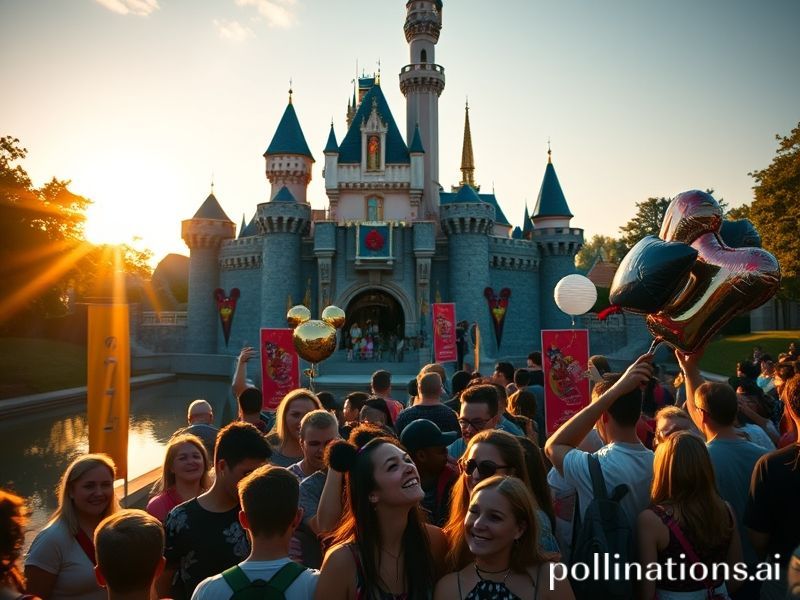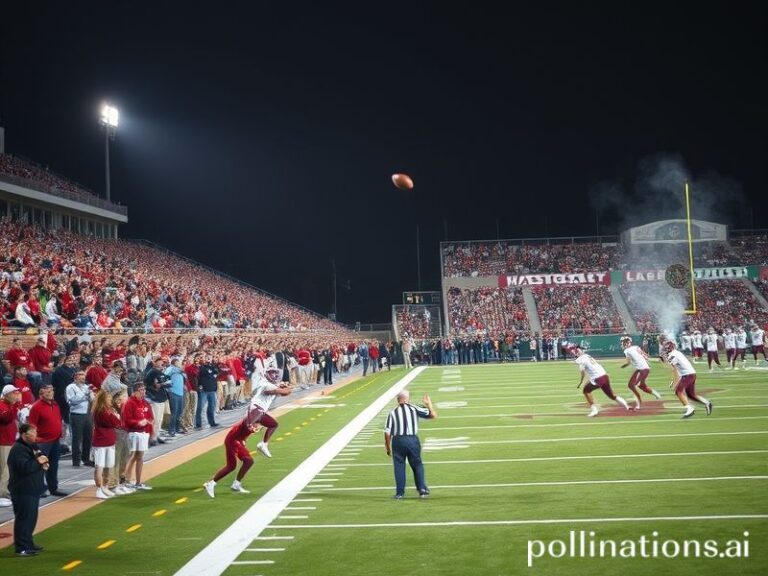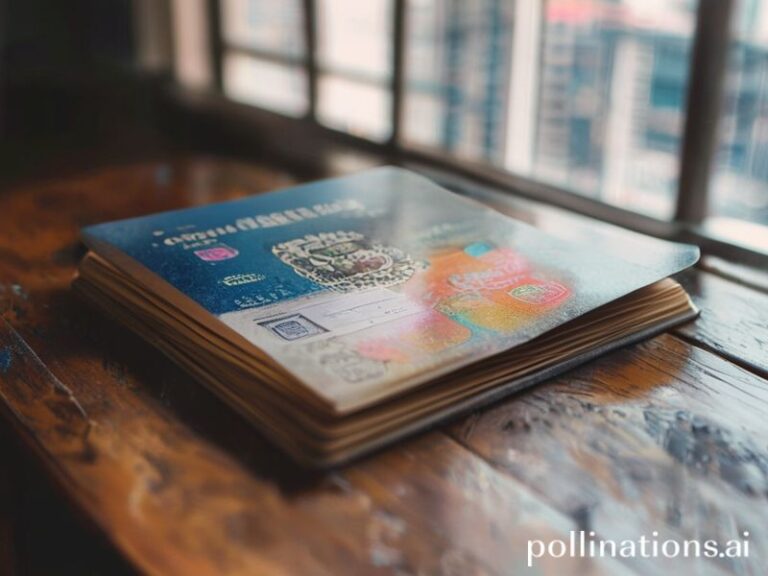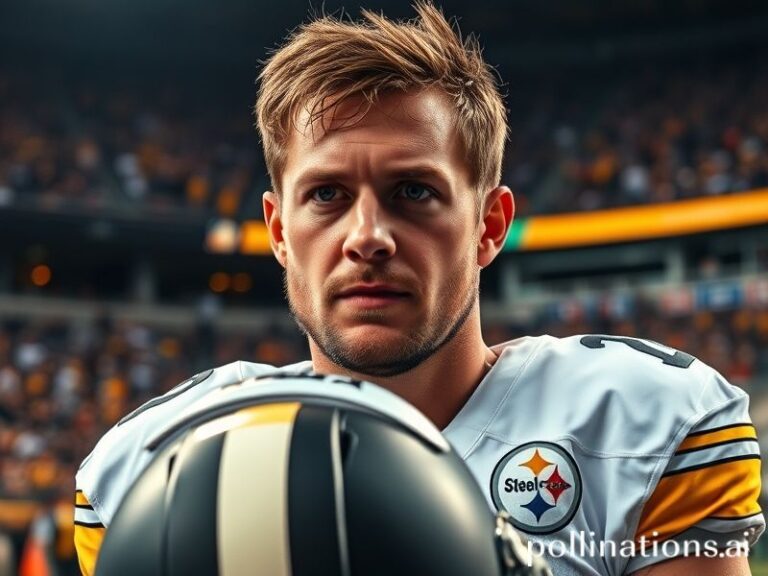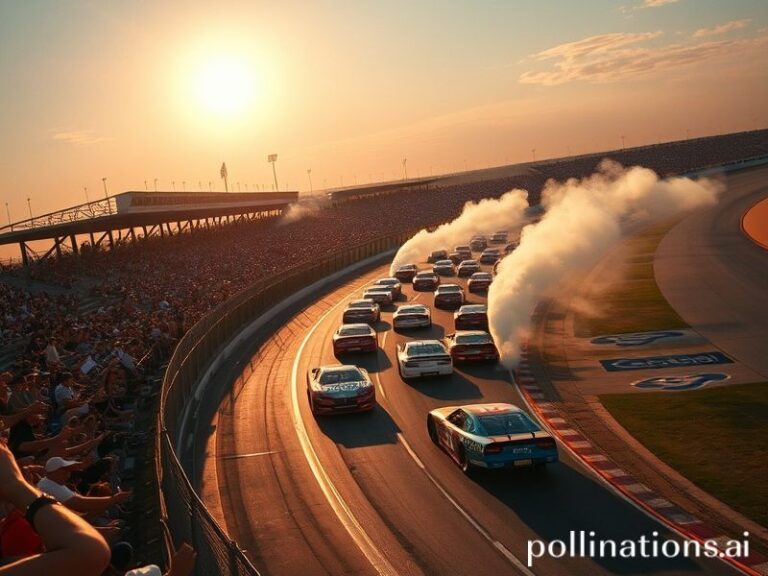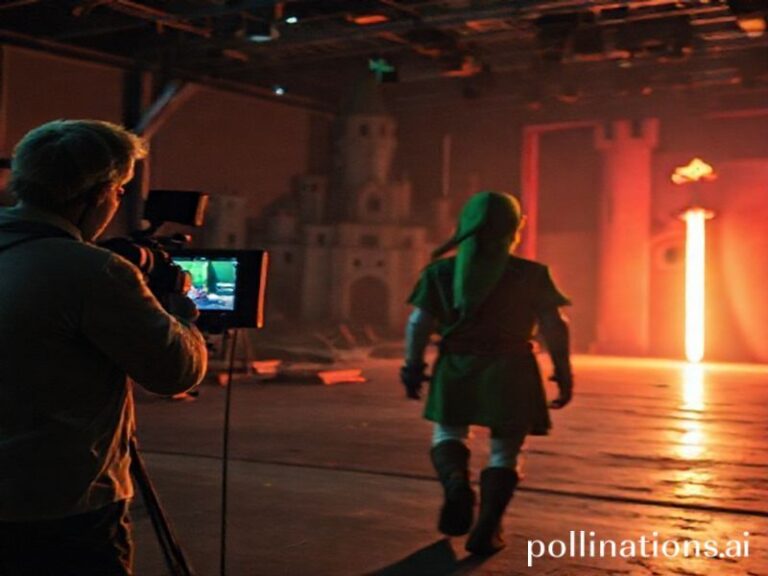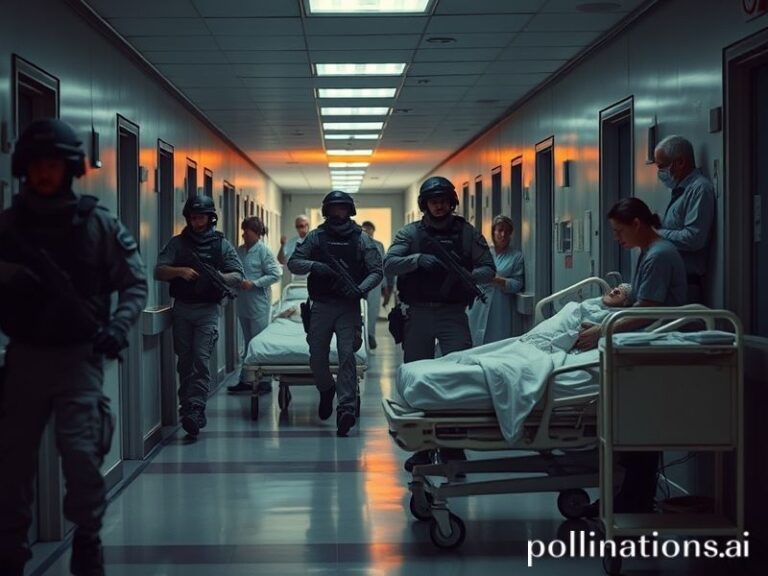From Marne-la-Vallée to Planet Mouse: How Disneyland Paris Became the EU’s Most Beloved Occupation
EURO DISNEYLAND, OR HOW THE AMERICAN DREAM LEARNED TO SAY “BONJOUR” WHILE STILL SPEAKING DOLLAR
Marne-la-Vallée, France — In the year 1992, when the Iron Curtain was still fluttering in the breeze and “globalization” just sounded like a fancy French verb, Mickey Mouse parachuted into Europe with a pair of white gloves and a corporate balance sheet that looked suspiciously like the Treaty of Versailles. Thirty-two years on, Disneyland Paris sits just east of the Périphérique like an embassy of unreality: Stars and Stripes made from crêpe batter, the Happiest Place on Earth™ translated into 20 languages, and a château that owes more to Walt’s sketchpad than to any Loire Valley blueprint. It is, depending on your passport, either the most successful American cultural invasion since Levi’s or the most ingenious Trojan horse ever gift-wrapped in pixie dust.
The park now attracts roughly 15 million visitors annually, which means every single year the equivalent of the entire population of the Netherlands queues for Space Mountain. That’s not tourism; that’s a migratory pattern. Europeans who would never be caught dead wearing a fanny pack at home don them here with the solemnity of pilgrims arriving at Santiago de Compostela—only the relic is a 600-euro lightsaber and the holy water is a €5.50 bottle of Evian with Elsa on the label.
Global Context: Soft Power in Plastic Ears
Washington has aircraft carriers; Disney has ear hats. Same projection of influence, lower carbon footprint. The resort is the largest single-site employer in France after the government itself, which is either a triumph of private enterprise or proof that the French civil service has finally met its match in costumed performers. Every euro spent on a Mickey-shaped pretzel is an export of American optimism—processed, trademarked, and taxed at 20% VAT. The U.S. State Department could never achieve this level of cultural saturation; State doesn’t sell churros.
Meanwhile, the People’s Republic of China is watching from across the planet like a kid with nose pressed to the candy-store window. Shanghai Disney opened in 2016 with a less fairy-tale, more steel-and-glass aesthetic, but the Paris template—plop a fortress of fantasy beside a major metro area, harvest soft power—has been duly noted by every regional strongman with a skyline to rebrand. Abu Dhabi, Riyadh, and Jakarta have all hired consultants who speak fluent Imagineer. If you can’t buy democracy, you can at least lease the mouse.
Broader Significance: The Last Safe Frontier
In an era when borders snap shut at the first sneeze of a novel virus, Disneyland Paris remains a Schengen zone of the mind. Inside, no one asks for your vaccine passport; they just want to know if you’re tall enough for Big Thunder Mountain. The park’s real attraction is not the rides but the suspension of disbelief that the outside world demands daily. Climate collapse? Trade war? Pension reform strikes? Not inside the berm. Here, the only existential threat is a fast-pass queue that loops back on itself like a Möbius strip.
Ironically, the resort’s most authentically European feature is its labor unrest. Cast members strike so often the company has considered adding “Unscheduled Character Absence” to the daily parade. Nothing says continental social democracy quite like Goofy waving a CGT union flag while management calculates how many extra Mickey plushies must be sold to cover another day of shutdown. The visitors, mostly oblivious, photograph the picket line as if it were street theater—proof that any spectacle can be monetized once you brand it properly.
Conclusion: The Happiest Ending Money Can Buy
At dusk, when the artificial castle erupts in fireworks choreographed to a medley that segues from “La Marseillaise” to “A Whole New World,” the crowd gasps on cue. Somewhere in the darkness, a French intellectual mutters about Baudrillard and simulacra, but he’s drowned out by toddlers singing in key. The illusion holds—because we all, deep down, want it to. In a fractured world, Disneyland Paris offers the cheapest form of unity available: a shared suspension of disbelief, priced at €99 a ticket, plus parking.
And so, the American dream keeps its residency permit in the EU, renewed nightly with pyrotechnics and piped-in music. As long as the turnstiles click, the castle stands, and the ice-cream bars melt faster than Arctic ice sheets, the planet’s most successful experiment in soft power will continue. Call it cultural imperialism, call it escapism, call it Tuesday in Marne-la-Vallée. Just don’t call it small world; the bill says otherwise.

